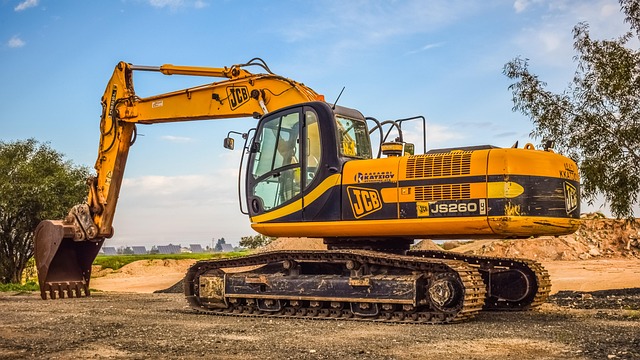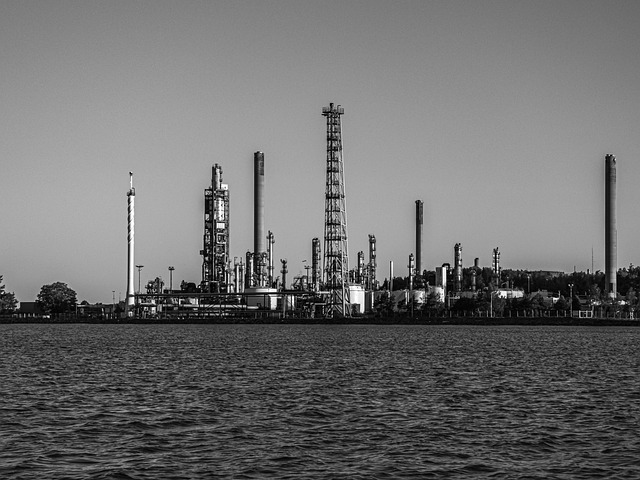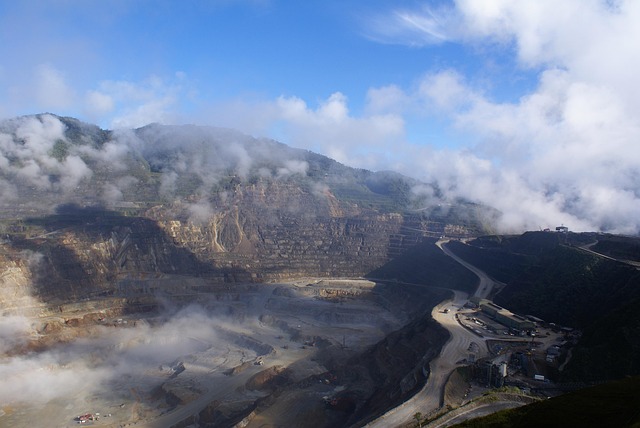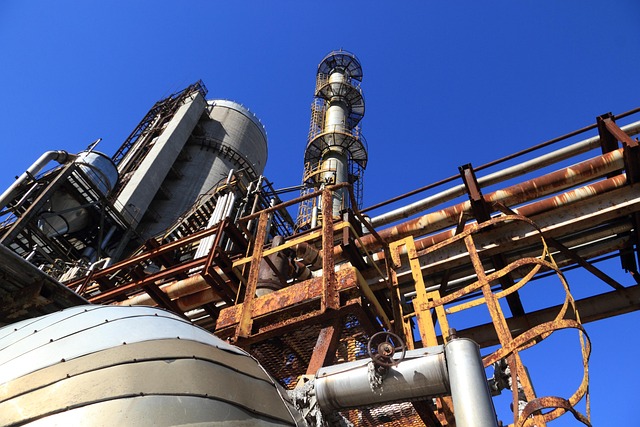Industrial property lending in Colorado is a vital driver of economic growth and job creation in manufacturing and logistics sectors, supporting businesses through specialized financing for property acquisition, construction, and improvement. The state's favorable business environment and strategic location make it an attractive hub for industrial operations, with a competitive market offering diverse tailored financing options. Significant changes in the landscape include growing demand for e-commerce warehouses and specialized facilities in technology, healthcare, and renewable energy sectors, leading to increased lending opportunities. Lenders must carefully evaluate location, accessibility, tenant financial health, physical condition, future development potential, and environmental regulations while navigating economic fluctuations. Successful transactions positively impact the economy and critical infrastructure, demonstrating the sector's innovative financing and growth potential.
“Discover the dynamic world of industrial property lending in Colorado, where robust markets and innovative businesses drive investment opportunities. This article explores the unique landscape of industrial real estate financing in the state, highlighting market trends that shape its vibrant economy. We delve into key considerations for lenders, navigate potential risks and rewards, and present compelling case studies of successful industrial loans. Uncover insights tailored to Colorado’s thriving industrial property lending sector.”
- Understanding Industrial Property Lending in Colorado
- Market Trends Shaping Colorado's Industrial Landscape
- Lender Considerations for Industrial Properties
- Navigating Risks and Rewards in Industrial Real Estate
- Case Studies: Successful Industrial Loans in Colorado
Understanding Industrial Property Lending in Colorado

Industrial property lending in Colorado plays a vital role in supporting the state’s robust manufacturing and logistics sectors. This specialized financing option caters to businesses involved in industrial activities, such as warehousing, distribution, and production facilities. It offers businesses the capital they need to acquire, construct, or improve their properties, thereby fostering economic growth and job creation.
Colorado’s favorable business environment, coupled with its strategic geographical location, makes it an attractive hub for industrial operations. Consequently, demand for industrial property lending is high, driving a vibrant market where banks, credit unions, and alternative lenders compete to offer tailored financing solutions. This competitive landscape provides businesses with various options, ensuring they can secure the funds required to thrive in the state’s dynamic industrial landscape.
Market Trends Shaping Colorado's Industrial Landscape

Colorado’s industrial landscape is undergoing significant transformations, driven by several market trends that are reshaping the state’s economic backbone. The demand for industrial property lending in Colorado has been steadily growing as businesses seek to capitalize on the region’s strategic location and robust logistics network. This surge can be attributed to the expanding e-commerce sector, which requires substantial warehouse and distribution center spaces. As a result, investors and developers are flocking to Colorado, eyeing opportunities to construct and acquire modern industrial facilities to meet this heightened demand.
Moreover, the state’s diverse economy, encompassing sectors like technology, healthcare, and renewable energy, contributes to the ongoing evolution of its industrial real estate market. The need for specialized spaces—such as data centers, research facilities, and manufacturing plants—is on the rise, fostering a dynamic environment for industrial property lending. Colorado’s thriving business climate, combined with favorable tax policies and a skilled workforce, makes it an attractive destination for both domestic and international investors looking to diversify their portfolios in industrial real estate.
Lender Considerations for Industrial Properties

When it comes to industrial property lending in Colorado, lenders must carefully evaluate potential risks and rewards. Industrial properties often involve unique challenges, such as fluctuating market conditions and specific tenant needs, which can impact investment returns. Lenders should consider the location and accessibility of the property, as well as its proximity to transportation hubs and major industries. Assessing the financial health of the business occupying the space is crucial, examining their credit history, revenue streams, and long-term stability.
Additionally, lenders must evaluate the property’s physical condition and potential for future development. Colorado’s diverse climate presents maintenance considerations, from snow removal in winter to pest control year-round. Lenders should also factor in replacement costs for aging infrastructure and consider any environmental regulations that could impact renovation or expansion plans. A thorough understanding of these aspects ensures informed lending decisions in the competitive industrial property lending market in Colorado.
Navigating Risks and Rewards in Industrial Real Estate

Navigating the complexities of industrial real estate requires a nuanced understanding of both risks and rewards, especially in Colorado where the market is dynamic. Industrial property lending in Colorado involves financing large-scale projects, such as manufacturing facilities, distribution centers, and logistics hubs, each presenting unique challenges.
Lenders must consider factors like location, proximity to transportation networks, market demand for industrial space, and potential fluctuations in the local economy. While these properties offer stable long-term investments, they also carry risks related to vacancy rates, tenant defaults, and changing supply dynamics. Effective risk management strategies, coupled with a deep understanding of the Colorado market, are essential for lenders to make informed decisions, ensuring both the security of their investments and attractive returns in this competitive sector.
Case Studies: Successful Industrial Loans in Colorado

In the dynamic landscape of industrial property lending, Colorado stands out as a hub for successful transactions. Case studies highlight several notable examples where innovative financing strategies have fueled the growth of local industries. One such instance involves a renewable energy startup that secured funding for constructing a state-of-the-art solar panel manufacturing facility in Denver. This project not only created jobs but also contributed significantly to the region’s commitment to sustainable energy solutions, showcasing the positive impact of industrial property lending.
Another successful loan facilitated the expansion of a logistics company based in Colorado Springs. With funding from a specialized industrial lender, the business was able to acquire and upgrade distribution centers, enhancing its capacity to serve growing e-commerce demands. This transformation resulted in increased efficiency, reduced delivery times, and improved customer satisfaction, further reinforcing the value of industrial property lending in supporting critical infrastructure and driving economic growth in Colorado.
Industrial property lending in Colorado has emerged as a dynamic sector, driven by robust market trends and a growing need for specialized financing. Understanding the nuances of this landscape is crucial for both lenders and borrowers navigating the complexities of industrial real estate. By carefully considering risk assessment, leveraging case studies for guidance, and staying attuned to market shifts, participants in Colorado’s industrial property lending space can capitalize on opportunities while ensuring successful outcomes. This focused approach to industrial property lending in Colorado promises continued growth and innovation in the years to come.
